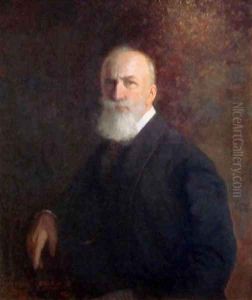Abdul Medjid II Paintings
Abdul Medjid II was the last Caliph of Islam from the Ottoman Dynasty. Born on May 29, 1868, in Constantinople (now Istanbul), Ottoman Empire, he was a member of the Ottoman royal family, being the son of Sultan Abdülmecid I and thereby a part of one of the most influential and long-standing dynasties in Islamic and world history. Unlike his predecessors, Abdul Medjid II's life and role took a dramatically different path due to the seismic political changes that occurred during his lifetime, culminating in the abolition of the Caliphate by the Republic of Turkey.
Abdul Medjid II’s early life was marked by the luxury and rigorous education typical for Ottoman princes, including arts, science, and military training. However, his life and potential reign as Sultan were profoundly affected by the decline of the Ottoman Empire and the political upheavals of the early 20th century. He was known for his artistic talents, particularly in painting and music, which were unusual hobbies for someone of his royal standing, allowing him a form of expression that was rare among his contemporaries in the royal family.
He ascended to the position of Caliph, not as a ruling monarch but as a religious figurehead, after the establishment of the Turkish Republic in 1922 and the subsequent abolition of the Ottoman Sultanate. His appointment as Caliph in 1924 was a compromise, attempting to preserve a semblance of the Ottoman religious authority amidst the radical secular reforms led by Mustafa Kemal Atatürk. However, his tenure was short-lived; the Turkish Grand National Assembly voted to abolish the Caliphate altogether on March 3, 1924, exiling Abdul Medjid II and other members of the Ottoman dynasty from Turkey.
After his exile, Abdul Medjid II settled in Paris, France, and later moved to Nice. During his years in exile, he continued his artistic pursuits and lived a relatively quiet life away from the political turmoil of the Middle East. His death on August 23, 1944, marked the end of an era, as he was the last person to hold the title of Caliph, a title that had significant religious and political authority in the Islamic world for centuries.
Abdul Medjid II's legacy is complex. For some, he represents the final chapter in the long history of the Ottoman Empire and the Islamic Caliphate, symbolizing the transition from traditional monarchies to modern nation-states in the Muslim world. For others, particularly those interested in the arts, he is remembered as a talented artist who managed to carve out a unique identity for himself beyond his political and religious titles.
